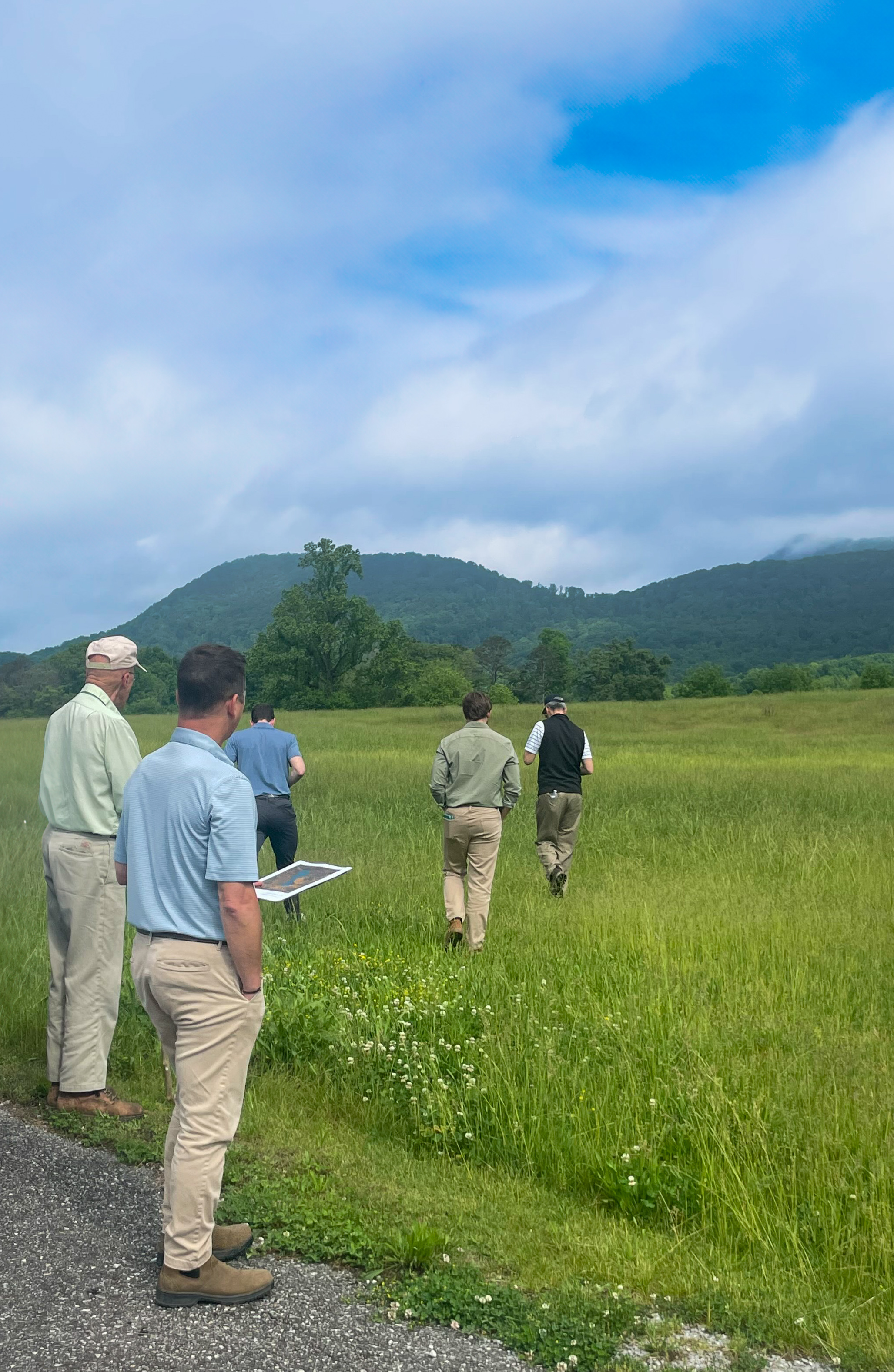Two East Tennessee Counties Participate in Site Development Programs
In 2024, Grainger and Morgan Counties were selected for site evaluation and preparation assistance through the Tennessee Department of Economic and Community Development’s (TNECD’s) Select Tennessee Certified Site Program and Rural Economic Opportunity Act.
 Property Evaluation Program
Property Evaluation Program
Grainger County was one of three Tennessee counties selected in April by TNECD to participate in the spring round of the Select Tennessee Property Evaluation Program (PEP). PEP originates from TNECD’s Select Tennessee Certified Sites Program. With assistance from site selection firm Austin Consulting, PEP evaluates potential industrial properties and provides participating counties guidance on site planning for future industrial development projects.
In early May, Grainger County officials and local utility providers hosted TNECD, Austin Consulting, and ETEDA to visit and review six potential properties for industrial development purposes. In addition to visiting potential industrial properties, the Austin Consulting team provided local leaders with a presentation on the site selection process and how communities can best prepare for economic development opportunities.
“The Property Evaluation Program allows our team to recommend the top property or properties for future industrial development in each participating county,” said Jonathan Gemmen, senior director at Austin Consulting. “An intangible benefit of PEP is current and future community leaders building consensus around readying a particular property, and understanding, in most cases, that it’s a near-term priority.”
Grainger County was selected based on the demonstrated local need for industrial properties and the county’s ability to assemble properties with viable market potential. The County will receive a comprehensive assessment of the strengths and needs of its inventory of potential industrial sites. This assessment will also offer recommendations to improve marketability.
Since its inception in 2015, PEP has helped improve the inventory of industrial sites and buildings across the state, with more than 443 sites being reviewed.
Site Development Grant
In June, Morgan County was one of 15 communities throughout Tennessee to receive financial assistance through TNECD’s Site Development Grant program. Morgan County received a $100,000 due diligence grant to conduct site analysis and environmental due diligence studies on the Darnell Property, a 138-acre parcel along TN Highway 62 in eastern Morgan County. The subject property was previously identified and evaluated during an earlier round of the state’s Property Evaluation Program.
The 15 grants, totaling more than $17 million, are designed to help communities invest in infrastructure and engineering improvements to land economic development projects and achieve Select Tennessee site certification.
“What happens in rural Tennessee matters to all Tennesseans, and we’ve made significant investments to strengthen the skilled workforce in our rural counties,” said Tennessee Governor Bill Lee. “TNECD’s Site Development grant program further supports those efforts by creating high-quality jobs for thousands of Tennesseans across our state and spurring future economic growth.”
The Site Development Grant program is part of the Rural Economic Opportunity Act, which provides funding to improve the economies of Tennessee’s rural communities. Since 2016, TNECD has awarded 180 Site Development Grants across the state, totaling nearly $100 million in assistance to local communities and generating 7,011 new jobs for Tennesseans.
“As East Tennessee’s rapid growth continues, finding, securing, and improving industrial sites throughout the entire region needs to be high priority,”, said Brad Maul, ETEDA President and CEO. “Maintaining a competitive level of readily marketable sites and buildings will take partnerships between our local communities, the State of Tennessee, utilities and many of our federal partners. It’s great to see both Grainger and Morgan counties taking steps to further identify and evaluate properties for future economic development opportunities.”
Source: ETEDA and TNECD
